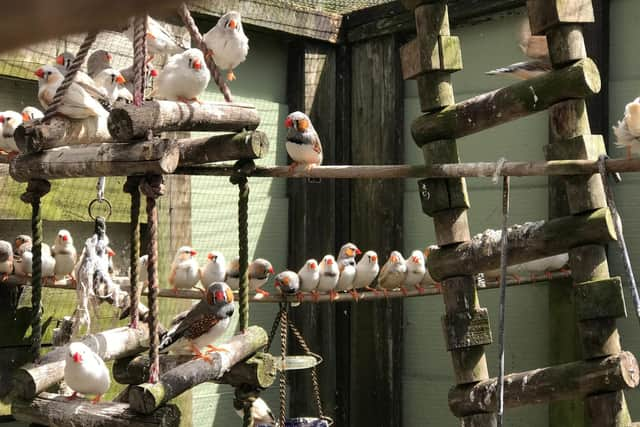RSPCA seeks homes for 156 zebra finches
and live on Freeview channel 276
RSPCA officers rounded up the birds from their aviary at their home in Newmarket, Suffolk, when their owner asked for help to rehome the finches due to a change in circumstances.
RSPCA inspector Emily Astilberry is helping the owner to rehome the birds. She said: “Due to a change in this owner’s circumstances we were asked to help rehome her birds.
Advertisement
Hide AdAdvertisement
Hide Ad“We can’t always help in these sorts of situations as we have to prioritise rescuing animals from cruelty and neglect but, thankfully, due to some very helpful local centres, we were able to find spaces for them to go to.


“The birds had a lovely aviary and were all happy and healthy but finding homes for 156 birds is no easy task so we wanted to help out to ensure that these birds were found good new homes.”
Emily worked alongside her RSPCA rescue colleague, and husband, Dean Astillberry to round up the birds.
She continued: “Initially rounding the birds up was quite easy but as there were fewer and fewer, they got harder and harder to catch.
Advertisement
Hide AdAdvertisement
Hide Ad"They kept finding little places to hide and we had to spend hours rounding them all up safely. Eventually, there was just one bird left who gave us the real run-around. We did find her though, finally, hiding under a rope bridge.”
Anyone looking to offer some of the finches a home should visit the RSPCA’s find a pet website to find those nearest.
In captivity these birds should be group housed in an equal sex ratio with lots of nest sites and should never live alone.
Communal aviary housing is best with outdoor access, lots of perch space at different heights, and space for free flight.
Advertisement
Hide AdAdvertisement
Hide AdZebra finches feed on the ground so they need solid flooring with suitable litter material such as bark chips, wood shavings or sand.
They eat dried grass seeds but in captivity do best with a mixed diet of foreign finch seed mix, some live insects, mealworms and panicum millet sprays, all provided in feeders or on the floor.
They also need access to water baths and environmental enrichment like toys and swings.